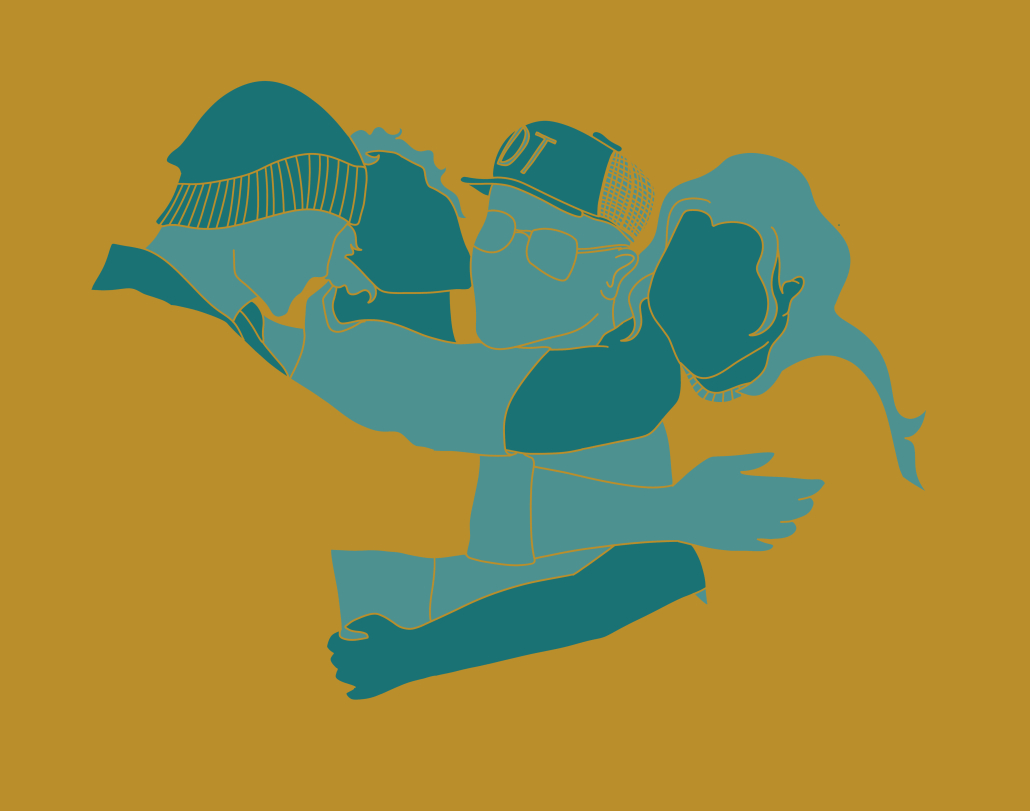Eating disorder knowledge should be common knowledge

Scrolling through social media, you may have noticed that this week is National Eating Disorder Awareness week, which takes place annually during the last week of February. TikTokers who choose to be vulnerable are speaking about their experiences with disordered eating habits while mental health advocacy accounts flood Instagram feeds. But, since social media adheres to the user’s interests and experiences, these essential posts may not have gotten to you.
Eating Disorder Awareness Week is a time to teach the entire population about the dangers of eating disorders and how to approach them without stigmatization and judgment. It is crucial to broaden who we discuss eating disorders with because it is an illness that can happen to anyone, regardless of age, gender or size.
According to the National Association of Anorexia Nervosa and Associated Disorders, nine percent of the United States population has an eating disorder, which is close to the diagnosis rate for diabetes and heart disease. Eating disorders take the lives of one person every 52 minutes with anorexia nervosa being the second deadliest mental health disorder after opioid addiction.
According to Mayo Clinic, anorexia nervosa is characterized by abnormally low body weight due to an intense fear of gaining weight or having a distorted perception of weight. But there are greater dangers to anorexia than the stigmatized image of an extremely thin body. In a study led by dietitian Melissa Whitelaw of the University of Melbourne, they discovered that 31% of patients with anorexia are not underweight — experiencing other severe symptoms affecting organs like the lungs, heart and brain, not just weight loss.
The lack of nutrients caused by this disorder weakens the lungs, malnutrition also weakens the heart, lowering blood pressure, causes heart failure and sudden death. Neurological effects include loss of brain volume, severe amnesia and confusion. The lack of nutrients in the brain can also cause a negative shift in mood, leading to depression and about 26% of people with eating disorders attempt suicide.
The human struggle with body image transcends time and place, with even people of the late Ice Age facing the same issues as many today. Society has been setting unrealistic body standards since at least 25,000 years ago when the “Venus of Willendorf” figurine was created in present-day Austria and portrayed a “perfect” woman with a pear-shaped body. Today, social media influencers are normalizing low-calorie diets in “what I eat in a day” videos and appearance-altering filters and surgeries.
Recognizing the early signs of eating disorders as soon as possible is essential, as symptoms may become irreversible. Some of these early signs are changes in eating habits and social withdrawal. More specific warnings of restrictive eating disorders include talking about calories constantly, excessive exercise and repeatedly weighing oneself. Typical signs of binge eating disorder include chaotic eating habits and the desire to eat in private.
One of the best ways to help someone with these symptoms is to try to understand their feelings through patience and gentleness. The best thing to do is encourage them to seek professional help so they can work with specialists in the field. Unfortunately, many patients are reluctant to receive help; if they are older than 18, they can only get treatment voluntarily. In this situation, the best thing to do is to contact an eating disorder facility, as they often have the resources to help friends and family intervene with loved ones. As important as it is to help those who currently have eating disorders, it is equally important to understand how current actions can impact the number of eating disorder patients in future generations. When preventing eating disorders, mundane actions can go a long way.
Think before you speak. Avoid saying positive things about your or someone else’s body that can encourage them to manipulate their appearance. Similarly, do not talk about dieting or what someone else is eating. Such comments are typically unnecessary and, depending on the person, can cause them to spiral down a dangerous rabbit hole. Parents should avoid commenting on their child’s weight, consider how they portray their body image in front of their child and help them manage their stress.
The eating disorder epidemic has impacted all types of people for thousands of years, and the only cure is education. Society must understand the dangers of eating disorders, how to help someone find treatment without stigmatization and how to speak to avoid triggering someone who may be prone to an eating disorder. Understanding eating disorders is valuable and should eventually become common knowledge, just like awareness about other epidemics.

